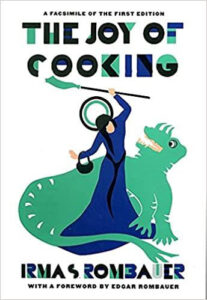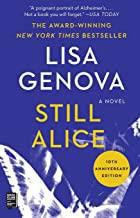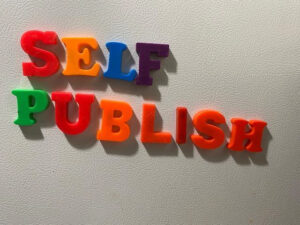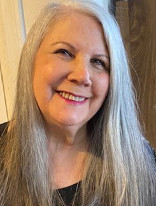
by Jan Yager, Ph.D.
 What do Irma Rombauer’s Joy of Cooking, Andy Weir’s The Martian, Beatrix Potter’s The Tale of Peter Rabbit, Robert Kiyosaki’s Rich Dad Poor Dad, and Lisa Genova’s Still Alice have in common? All those bestselling books were originally self-published!
What do Irma Rombauer’s Joy of Cooking, Andy Weir’s The Martian, Beatrix Potter’s The Tale of Peter Rabbit, Robert Kiyosaki’s Rich Dad Poor Dad, and Lisa Genova’s Still Alice have in common? All those bestselling books were originally self-published!
Fortunately, in addition to coaching other book authors, I have had a publishing career that encompassed both types of publishing, self-publishing through my own press, Hannacroix Creek Books, Inc., since 1997, and publishing with commercial houses, beginning at age 27, through presently, such as Scribner, Simon & Schuster, Doubleday, Grove Press, Prentice-Hall, Penguin Random House, HarperCollins India, and many others!
Self-publishing is not for everyone. It takes time and, depending on how you go about it, a little or a lot of money. But there are, however, at least ten reasons you should consider this option for your first, or, if you have been traditionally published by a commercial house before, for your next book.
little or a lot of money. But there are, however, at least ten reasons you should consider this option for your first, or, if you have been traditionally published by a commercial house before, for your next book.
- You control every aspect of your published book, from approval of the final manuscript to the title, interior design, cover, size of the book, and even when it will be published.
- Once the initial investment to publish your book is recouped, you will get a much bigger share of the earnings than you could with a traditional or even a hybrid publisher.
- In most cases, you can get your book from finished, proofread manuscript to published book much faster than if you go with a traditional commercial publisher. However, be careful to avoid the trap of releasing your book “overnight” just because you can. If possible, allow yourself 4-6 months for pre-publication promotion.
- You control when, or if, your book gets updated. Making any necessary changes in your finished book, especially if you do a POD (Print on Demand) or e-book version, are relatively easy.
- Decisions related to your book, and its publication, rely on fewer individuals to make it happen compared to a company with a hierarchy of individuals who have to sign you up and sign off on editorial production, or marketing decisions.
- If your book is such a niche topic and you are part of that niche, you might be the best option to find and cultivate that unique audience.
- If you have always been published by a commercial publisher, you might want to just experiment with one book going the self-publishing route to see if it is for you.
- Today, there are so many freelancers or even full-service self-publishing companies that you no longer must do it all yourself.
- You can get the book to consumers directly because you are aware that it is still harder for most self-published books to get into bookstores or libraries although some alternatives, like Ingram Spark, or hybrid publishers, which are a unique form of self-publishing, are making it somewhat easier to accomplish that.
- If you continually get rejected by commercial publishers, and you either make changes in your proposal or manuscript, or believe it’s ready to publish, it is usually much better to self-publish than to let your manuscript languish in your computer or desk drawer.

You might have a reason to self-publish that is not included in this list! There are reasons to go with a commercial publisher instead. That is covered in this author’s article entitled, “The Ten Best Reasons to Publish with a Traditional Commercial Publisher.”
Jan Yager, Ph.D. is a sociologist/victimologist, coach, freelance writer, and publisher in Stamford, Connecticut, whose 50-plus award winning books, with one or more titles translated into 35 languages, include 365 Daily Affirmations for Happiness, Productive Relationships, When Friendship Hurts, Looking Backward, Going Forward: Reflections on a Writer’s Life, How to Self-Publish Your Book (Square One Publishers), How to Promote Your Book (Square One, 2023), and more. She has published with such major houses as Simon & Schuster, Scribner. Penguin Random House, Doubleday, and her own press, Hannacroix Creek Books, Inc. Jan also teaches at colleges and universities including, since 2014, in the Sociology Department at John Jay College of Criminal Justice, and, since 2018, at Baruch College, where she is an Adjunct Associate Professor. Follow Jan’s tweets at @drajnyager. For more information, or to sign up for her mailing list or newsletter, go to https://www.drjanyager.com.
Stamford, Connecticut, whose 50-plus award winning books, with one or more titles translated into 35 languages, include 365 Daily Affirmations for Happiness, Productive Relationships, When Friendship Hurts, Looking Backward, Going Forward: Reflections on a Writer’s Life, How to Self-Publish Your Book (Square One Publishers), How to Promote Your Book (Square One, 2023), and more. She has published with such major houses as Simon & Schuster, Scribner. Penguin Random House, Doubleday, and her own press, Hannacroix Creek Books, Inc. Jan also teaches at colleges and universities including, since 2014, in the Sociology Department at John Jay College of Criminal Justice, and, since 2018, at Baruch College, where she is an Adjunct Associate Professor. Follow Jan’s tweets at @drajnyager. For more information, or to sign up for her mailing list or newsletter, go to https://www.drjanyager.com.